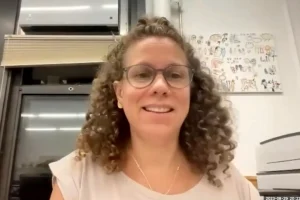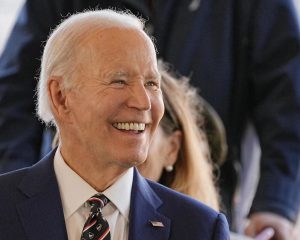Ukraine stands out as a test of UK’s soft power to sway Trump

In a speech that studiously avoided any glint of geopolitics, King Charles III’s fleeting mention of Ukraine on Wednesday evening — however small — stood out.
“In two World Wars, we fought together to defeat the forces of tyranny,” Charles told President Donald Trump at a state banquet underneath the vaulted ceilings of Windsor Castle’s St. George’s Hall. “Today, as tyranny once again threatens Europe, we and our allies stand together in support of Ukraine, to deter aggression and secure peace.”
It was a notable, if gentle, reminder to his guest that American participation in the Western effort to deter Russia’s war remains a necessary and urgent imperative, even as Trump appears to waver on applying new sanctions on Moscow and seems, again, upset at Ukraine’s leader for not accepting a deal.
Amid the pageantry and pomp of this week’s state visit, the issue of Ukraine stands out as an area that will test the ability of Britain’s legendary soft power to convince Trump to increase his pressure on Russian President Vladimir Putin.
The hope among some European officials is that perhaps the charm offensive may instill in Trump a new appreciation for the long history of the US’ role in European security, and a fresh perspective on his counterparts’ calls for new action against Russia.
Some of those officials tried to read into first lady Melania Trump’s sunflower-hued Carolina Herrera gown at Wednesday’s banquet — which, when paired with Queen Camilla’s royal blue ensemble, mimicked the Ukrainian flag — as tacit support for the country.
The topic is almost certain to arise when Trump meets Thursday with Prime Minister Keir Starmer, who has tried, so far unsuccessfully, to cajole Trump into adopting a tougher stance toward Moscow.
At Chequers, the prime minister’s country home in Buckinghamshire, the two men will view items from the Winston Churchill archive, another reminder of the wartime role the United States once played in Europe.
Whether the message will break through, however, isn’t clear. Trump offered no mention of the ongoing conflict during his own toast on Wednesday evening. And if he discussed it with the king over dinner, it will likely never be known, unless Trump spills the details.
Charles’ mention of the war was hardly an accident. His remarks would have been written with input from Britain’s government. And the king — who sources say is up-to-date on ceasefire talks — has previously shown a willingness to embrace the Ukrainian cause, including in March when he hosted President Volodymyr Zelensky at Sandringham, his private home, three days after the Ukrainian leader’s explosive Oval Office blow-up with Trump.
As Trump was departing for the UK on Tuesday, he again flashed frustration toward Zelensky, who he suggested was an impediment to reaching a deal that would end the war.
“He’s going to have to get going and make a deal. He’s going to have to make a deal. Zelensky is going to have to make a deal,” Trump said as he was leaving the White House.
The president has struggled to broker an end to the conflict in Ukraine, and a series of high-profile summits last month — with Putin in Alaska and with Zelensky and a host of European leaders at the White House — appeared to do little to advance the negotiations.
Russia has maintained its maximalist demands to end the war, including taking over the entire Donbas region and insisting Ukraine never join NATO. Most recently, its drones flew into airspace over Poland — a NATO member — an escalation of the conflict that prompted outrage and pledges from European nations (but not the United States) to bolster their military presence in the region.
Still, it was Zelensky who Trump said Tuesday must agree to a deal to end the war. And it was European nations — not the United States — who he said must step up their efforts to apply pressure on Putin.
“Europe has to stop buying oil from Russia. Okay? You know, they talk. But they have to stop buying oil from Russia,” Trump added, renewing his call for more European efforts to end the war.
While Trump has applied a new tariff on India for its purchases of Russian oil, he has stopped short of taking action against the other top purchaser — China, with whom he is trying to broker a trade deal.
Trump spoke on Tuesday with India’s Prime Minister Narendra Modi, and is scheduled to speak Friday with China’s leader Xi Jinping. It wasn’t clear how much he intended to raise the war in Ukraine with either man.
European leaders, meanwhile, have struggled to respond to Trump’s demands. There appeared little likelihood they would agree to new tariffs on China or India, important trading partners. European officials have said they don’t plan to use tariffs as pressure tactics in the way Trump uses them.
And while European nations have tried to speed up efforts to end imports of Russian oil and natural gas, some countries — including Hungary, led by top Trump ally Viktor Orban — continue to rely on the products.
That has left little optimism among European officials that Trump will enact new measures, with many saying they believe the demands he began laying out earlier this month were just another attempt at stalling on new action.


